
Gizo: Gateway to Solomon Islands' Natural Wonders
Gizo, the bustling capital of the Western Province in the Solomon Islands, is a gem waiting to be explored. This small but vibrant town is nestled on Ghizo Island and serves as a gateway to some of the region's most stunning natural attractions, including pristine beaches, crystal-clear waters, and lush tropical landscapes. Known for its friendly locals and rich cultural heritage, Gizo offers a perfect blend of relaxation and adventure. The town itself is a charming mix of traditional and modern influences. You can wander through the local markets to experience the vibrant atmosphere and pick up handcrafted souvenirs, or enjoy fresh seafood at one of the many local eateries. The nearby Kennedy Island, named after President John F. Kennedy, who was stranded here during World War II, adds a touch of historical intrigue to your visit. For adventure seekers, Gizo is a paradise. The surrounding waters are teeming with marine life, making it a top destination for diving and snorkeling. Renowned dive sites such as the Toa Maru wreck and the Grand Central Station are just a short boat ride away, offering unforgettable underwater experiences. If you prefer staying above water, kayaking and island-hopping tours are popular activities that allow you to explore the beauty of the Solomon Islands at your own pace.
Local tips in Gizo
- Visit the local market early in the morning for the freshest produce and unique handcrafted items.
- Carry cash as many small businesses and market vendors do not accept credit cards.
- Hire a local guide for diving and snorkeling trips to explore the best underwater spots safely.
- Try the local seafood dishes, especially the freshly caught fish and lobster.
- Respect local customs and traditions, and always ask for permission before taking photos of people.
Gizo: Gateway to Solomon Islands' Natural Wonders
Gizo, the bustling capital of the Western Province in the Solomon Islands, is a gem waiting to be explored. This small but vibrant town is nestled on Ghizo Island and serves as a gateway to some of the region's most stunning natural attractions, including pristine beaches, crystal-clear waters, and lush tropical landscapes. Known for its friendly locals and rich cultural heritage, Gizo offers a perfect blend of relaxation and adventure. The town itself is a charming mix of traditional and modern influences. You can wander through the local markets to experience the vibrant atmosphere and pick up handcrafted souvenirs, or enjoy fresh seafood at one of the many local eateries. The nearby Kennedy Island, named after President John F. Kennedy, who was stranded here during World War II, adds a touch of historical intrigue to your visit. For adventure seekers, Gizo is a paradise. The surrounding waters are teeming with marine life, making it a top destination for diving and snorkeling. Renowned dive sites such as the Toa Maru wreck and the Grand Central Station are just a short boat ride away, offering unforgettable underwater experiences. If you prefer staying above water, kayaking and island-hopping tours are popular activities that allow you to explore the beauty of the Solomon Islands at your own pace.
When is the best time to go to Gizo?
Iconic landmarks you can’t miss
Fatboys Resort
Discover tranquility and adventure at Fatboys Resort, Gizo's premier destination for relaxation, dining, and vibrant local culture.

Solomon Scouts & Coastwatchers Monument
Explore the Solomon Scouts & Coastwatchers Monument, a historical landmark in Honiara honoring local heroes of WWII amidst stunning tropical landscapes.
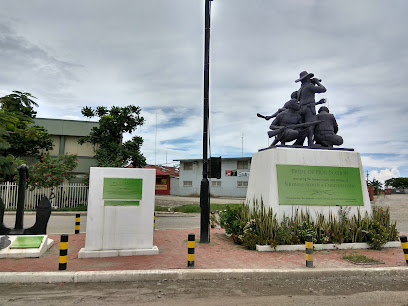
Solomon Islands National Museum
Explore the Solomon Islands National Museum for a comprehensive insight into the vibrant cultures and histories of the Solomon Islands.
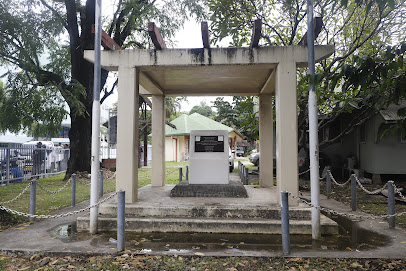
Dive Gizo
Explore the underwater beauty of Gizo with Dive Gizo, your gateway to exhilarating dive adventures and vibrant marine life.
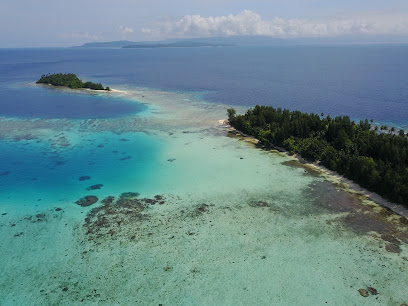
Gizo Hotel
Experience the serene beauty of Gizo Hotel in the Solomon Islands, your perfect base for adventure and relaxation amidst stunning ocean views.

Imagination Island Coral Reef Resort
Experience the beauty of the Solomon Islands at Imagination Island Coral Reef Resort, your gateway to adventure and relaxation in a tropical paradise.
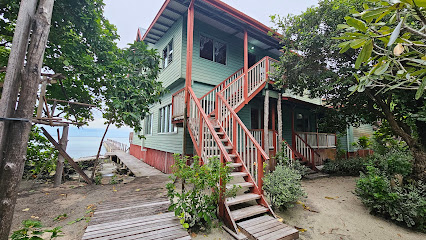
Oravae Cottage
Discover the beauty of Gizo at Oravae Cottage, a tropical resort hotel offering stunning ocean views and unique outdoor experiences.

Titiru Eco Lodge
Discover the tranquility of Titiru Eco Lodge in Munda, Honiara, where eco-friendly accommodations meet stunning natural beauty and local culture.
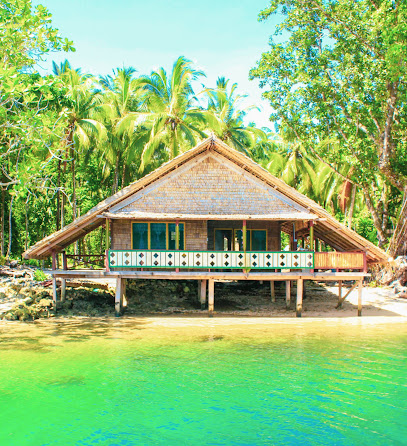
Zipolo Habu Resort
Discover the beauty of Lola Island with a stay at Zipolo Habu Resort, a perfect blend of relaxation and adventure in the Solomon Islands.

Gizo Waterfront
Experience the best of local and international cuisine at Gizo Waterfront, where breathtaking ocean views meet exceptional dining.
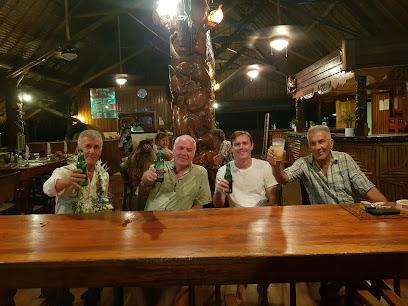
Ghizo Island
Explore Ghizo Island: A Tropical Paradise of Pristine Beaches, Vibrant Marine Life, and Rich Cultural Heritage in the Heart of the Solomon Islands.
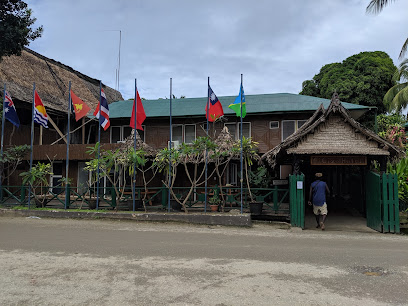
Gizo Lodge
Discover paradise at Gizo Lodge, an idyllic retreat in the Solomon Islands, blending comfort, adventure, and breathtaking natural beauty.
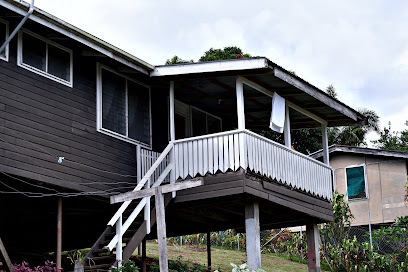
Bales & Beyond
Explore Bales & Beyond in Gizo for a unique shopping experience filled with quality clothing and local craftsmanship, perfect for every traveler.
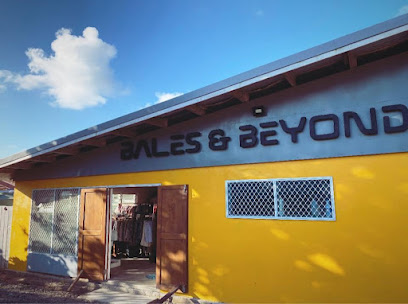
Sanbis Resort
Discover the serene beauty and rich culture of Gizo at Sanbis Resort, where luxury meets adventure in a tropical paradise.

Gizo Harbour
Experience the serene beauty and vibrant culture of Gizo Harbour in the Solomon Islands, a perfect getaway for relaxation and adventure.

Unmissable attractions to see
Dive Gizo
Discover the underwater wonders of Gizo at Dive Gizo, your premier dive shop for unforgettable marine adventures in the Solomon Islands.
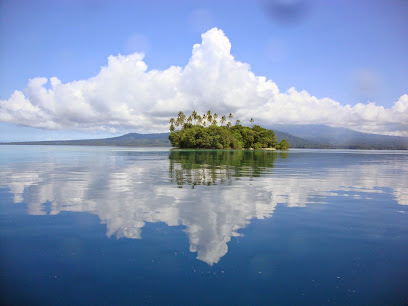
WWII Museum
Discover the powerful stories of World War II at the WWII Museum in Munda, showcasing artifacts and exhibits that bring history to life.
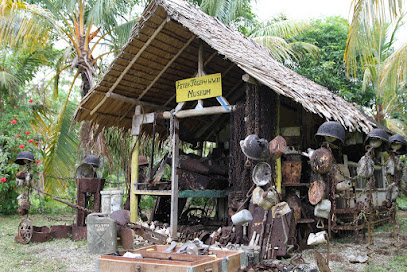
Ghizo Island
Experience the pristine beauty and vibrant culture of Ghizo Island, a tropical paradise in the Solomon Islands that offers adventure and relaxation.
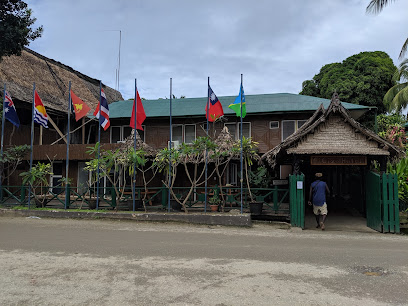
Myles Falls
Experience the serene beauty of Myles Falls in Ringgi, a stunning tourist attraction surrounded by lush nature and rich local culture.
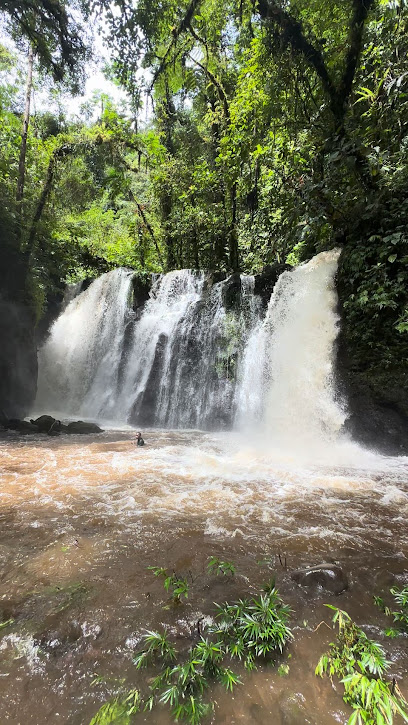
Esorolando Point
Explore the breathtaking coastal views and serene atmosphere of Esorolando Point, a hidden gem in Vella, Solomon Islands.
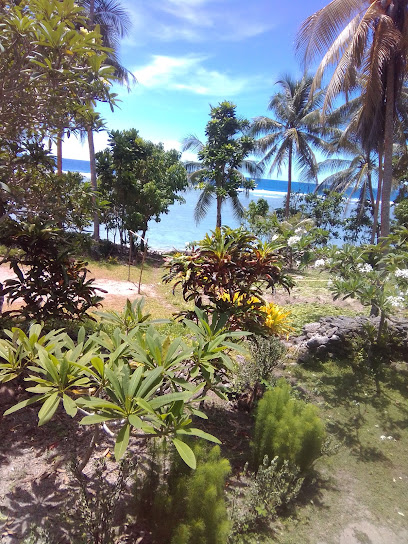
Leleana Resort Kolombangara
Experience the serene beauty and rich culture of Kolombangara Island at Leleana Resort, your perfect tropical getaway in the Solomon Islands.

Pallone Village
Experience the breathtaking beauty and rich culture of Pallone Village in the Solomon Islands, a unique destination for travelers seeking adventure and authenticity.

Pinadapada
Explore the untouched beauty of Pinadapada Island in the Solomon Islands, where stunning beaches meet rich marine ecosystems and vibrant local culture.

Repi point
Explore Repi Point, a serene tourist attraction in South Rendova, where stunning landscapes and tranquil vibes await your discovery.
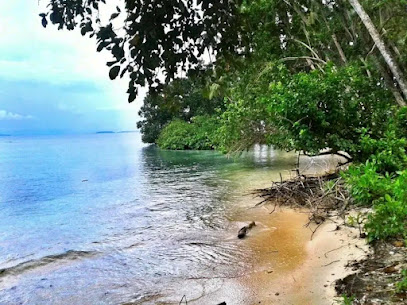
Poroi
Explore the serene beauty and rich culture of Poroi Village on Ranongga Island, a hidden gem in Honiara, Solomon Islands.

Nusa hope
Explore the serene beauty of Nusa Hope, an enchanting destination within Roviana Lagoon, known for its stunning landscapes and vibrant marine life.

Kerukeru Island
Explore the breathtaking landscapes and rich culture of Kerukeru Island, a hidden gem in the Solomon Islands perfect for adventure and relaxation.
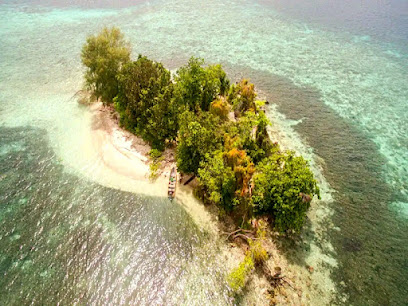
Essential places to dine
Coral Sea Resort & Casino
Discover the perfect blend of luxury and excitement at Coral Sea Resort & Casino in Honiara – where unforgettable experiences await.

Tenkai Sushi Cafe
Experience authentic Japanese cuisine at Tenkai Sushi Cafe in Honiara - where fresh ingredients meet traditional flavors.
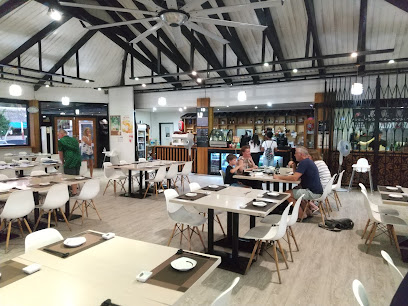
Fatboys Resort
Discover the enchanting beauty of Gizo at Fatboys Resort – where relaxation meets adventure amidst tropical paradise.

Mr Grill Fast Food & Noodle Haus
Experience delectable fast food and authentic noodle dishes at Mr Grill Fast Food & Noodle Haus in Honiara - where taste meets tradition.
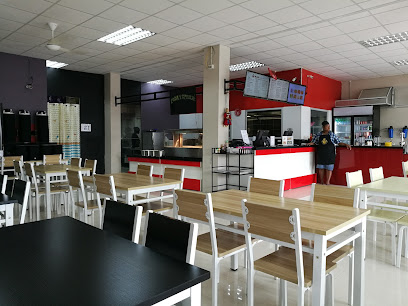
Mambo Juice!
Discover Mambo Juice in Honiara - your go-to spot for fresh juices, coffee delights, and tasty sandwiches amidst vibrant surroundings.
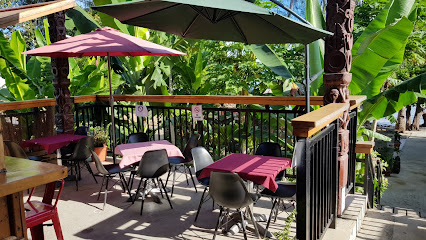
Monarch
Experience the best grilled dishes in Honiara at Monarch - where flavor meets hospitality in a vibrant setting.
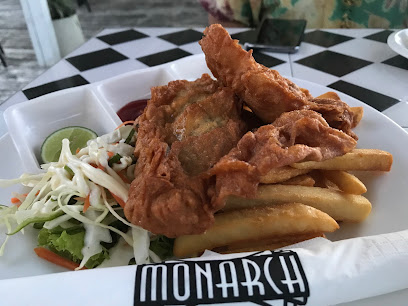
Haydn's Steakhouse
Experience the best steaks in Honiara at Haydn's Steakhouse - where flavor meets hospitality in the heart of the Solomon Islands.
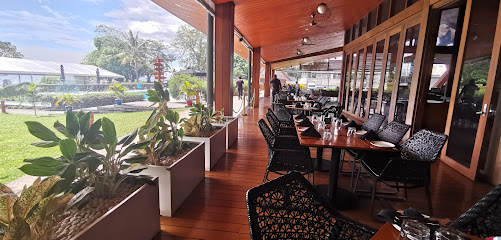
Injoy Restaurant
Experience authentic Chinese cuisine at Injoy Restaurant in Honiara - where flavorful dishes meet vibrant atmosphere.
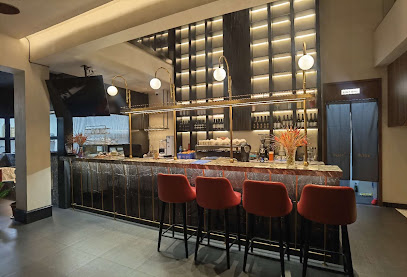
Taste & Traditions
Discover the flavors of Solomon Islands at Taste & Traditions – where local cuisine meets warm hospitality in Honiara.
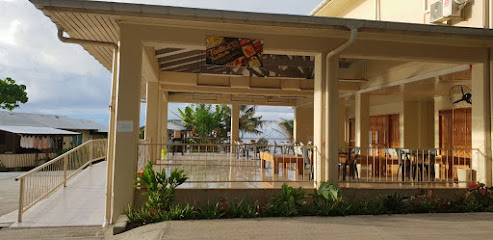
Local Fusion Cafe & Bar
Discover Local Fusion Cafe & Bar in Honiara - where local flavors meet international cuisine in a cozy atmosphere.
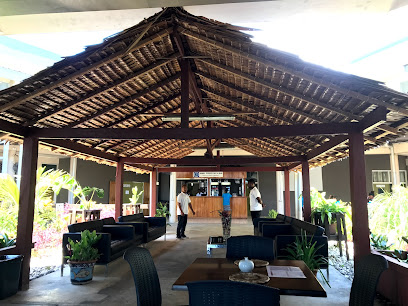
PT 109 Restaurant
Discover delightful local flavors at PT 109 Restaurant in Gizo - where vibrant atmosphere meets exceptional cuisine.
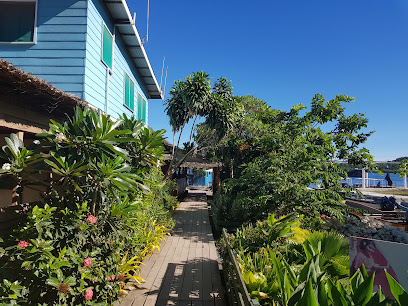
Gizo Waterfront
Experience exquisite dining at Gizo Waterfront, where local flavors meet breathtaking ocean views in beautiful Solomon Islands.
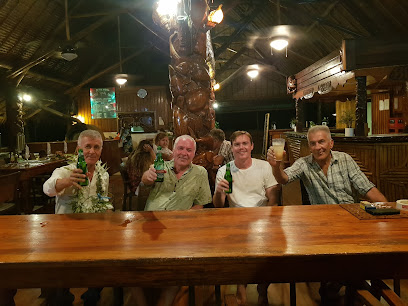
Club Havanah
Discover exquisite French cuisine at Club Havanah in Honiara, where local flavors meet classic culinary artistry.
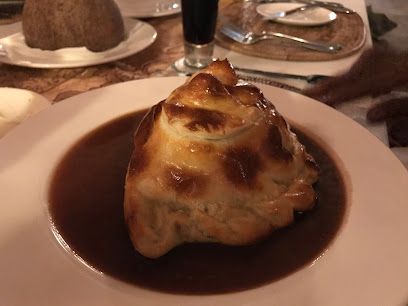
Nicky's Fast Food
Experience authentic Solomon Island cuisine at Nicky's Fast Food in Honiara - where local flavors meet casual dining.

Golden Corner
Discover the flavors of Honiara at Golden Corner - where local cuisine meets international flair in a cozy atmosphere.
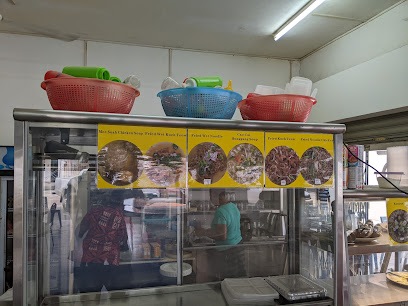
Markets, malls and hidden boutiques
Dive Gizo
Explore the breathtaking dive sites of Gizo with Dive Gizo, your gateway to the underwater wonders of the Solomon Islands.
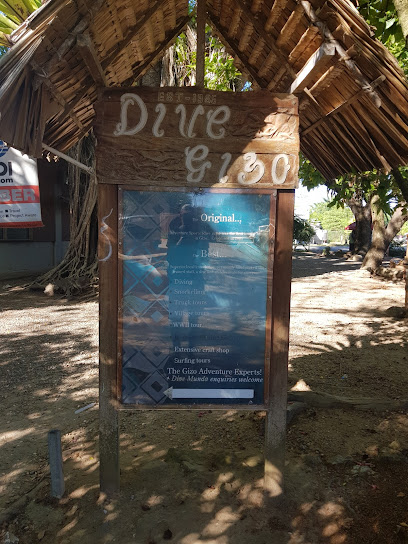
Imagination Island Coral Reef Resort
Experience the beauty of Gizo at Imagination Island Coral Reef Resort, where adventure meets relaxation in a tropical paradise.
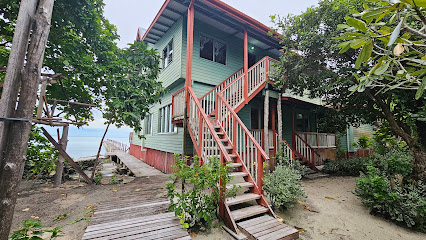
Bulk Shop
Discover the Best Local Products at Bulk Shop, Honiara's One-Stop Grocery Destination.
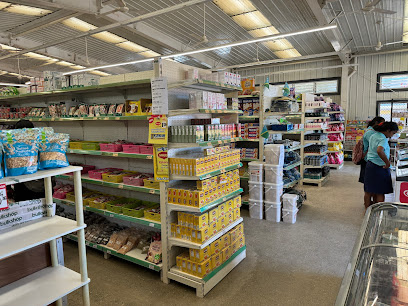
Noro Market
Discover the heart of Noro at Noro Market, where local culture, fresh produce, and handmade crafts come together in a vibrant atmosphere.
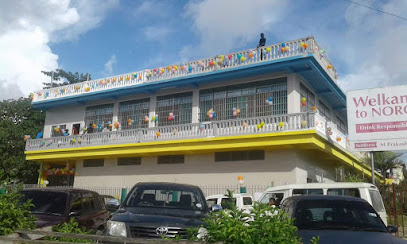
Gizo Township
Explore Gizo Township, a vibrant market in the Solomon Islands where local culture, crafts, and culinary delights come together in a picturesque setting.
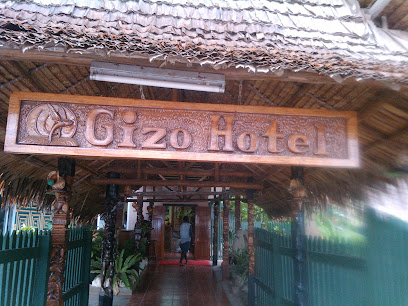
Gold Shing Trading Ltd
Explore the bustling Gold Shing Trading Ltd in Gizo's Chinatown for unique souvenirs and a glimpse into local culture.

penuna
Discover the untouched beauty of Penuna on Ranongga Island, where serene beaches meet vibrant local culture in the heart of the Solomon Islands.

Baegu Store
Discover local flavors and essentials at Baegu Store in Honiara, your go-to general store for an authentic Solomon Islands experience.

Ibibu Bread Shop
Experience the taste of Munda with fresh, locally baked breads and pastries at Ibibu Bread Shop, a culinary gem in the Solomon Islands.
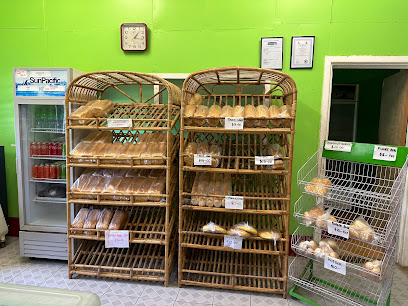
Wonderland Cafe
Discover the charm of Wonderland Cafe in Munda, where every cup of coffee is a taste of paradise and a gateway to local culture.
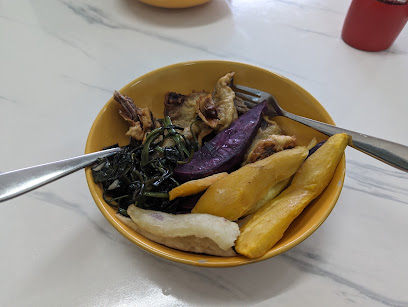
Jononi Enterprise
Explore Gizo with ease at Jononi Enterprise, your essential convenience store for local products and travel necessities.
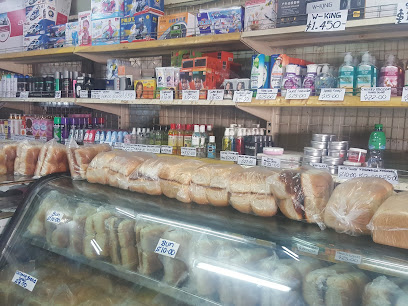
Coffee Station
Discover the cozy charm of Coffee Station in Gizo, where aromatic brews and friendly service create the perfect coffee experience.
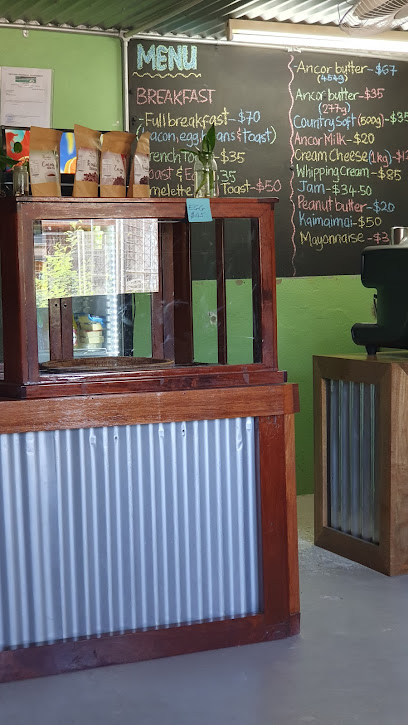
Bales & Beyond
Explore Gizo's vibrant clothing culture at Bales & Beyond, a unique market for stylish finds and local treasures.
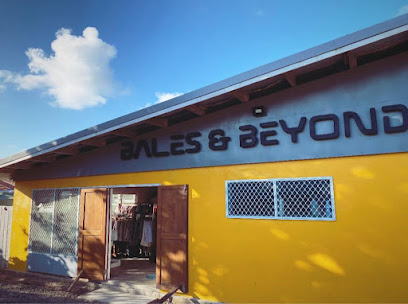
dj's souvenir, merchandise, gift shop
Explore Honiara's DJ's Souvenir Shop for authentic gifts and unique merchandise that capture the spirit of the Solomon Islands.
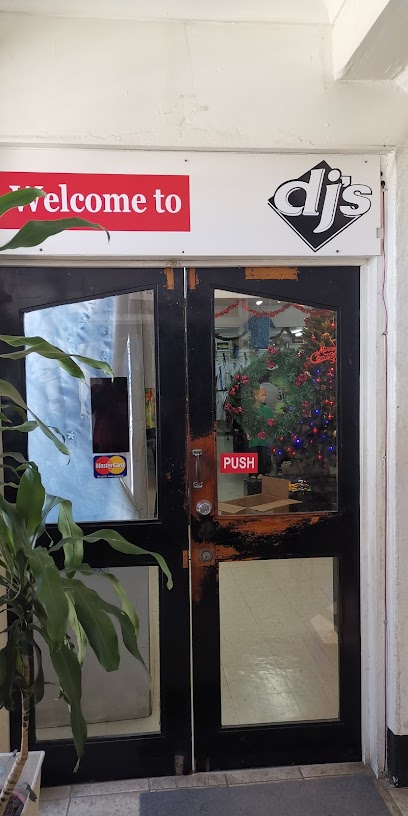
Nautilus Books&Gifts
Explore Nautilus Books & Gifts in Honiara for unique souvenirs, local crafts, and insightful literature that capture the spirit of the Solomon Islands.

Essential bars & hidden hideouts
Fatboys Resort
Experience the breathtaking beauty and vibrant culture of Gizo at Fatboys Resort, where relaxation meets adventure in paradise.

Dive Gizo
Discover the vibrant underwater life of the Solomon Islands at Dive Gizo, your gateway to an unforgettable diving experience.
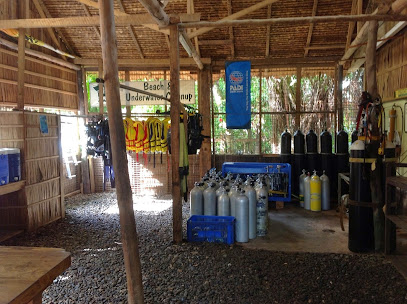
Gizo Hotel
Discover the serene charm of Gizo Hotel, a perfect blend of comfort and local culture in the beautiful Solomon Islands.

Imagination Island Coral Reef Resort
Experience the serene beauty and vibrant marine life at Imagination Island Coral Reef Resort in Gizo, a perfect getaway for relaxation and adventure.
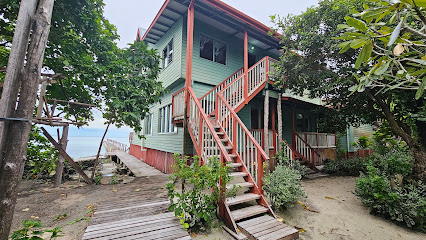
PT 109 Restaurant
Experience the best of Solomon Islands cuisine at PT 109 Restaurant, where local flavors and warm hospitality create unforgettable dining moments.
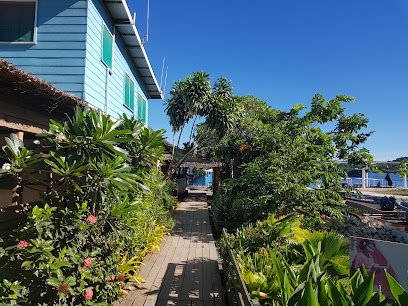
Gizo Waterfront
Experience the flavors of the Solomon Islands at Gizo Waterfront, where stunning views meet deliciously fresh seafood in a charming seaside setting.
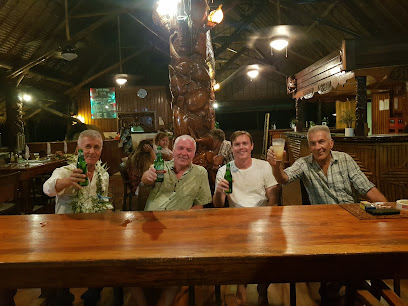
Noro Solomon
Experience the rich flavors of the Solomon Islands at Noro Solomon, a vibrant restaurant in the heart of Noro, where culinary delights await.
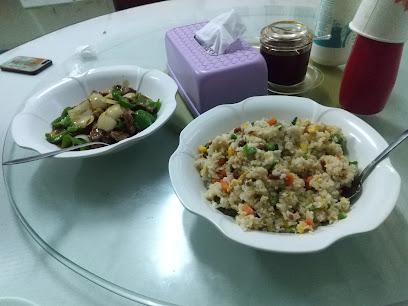
Summer Flowers
Discover the charm of Munda at Summer Flowers, your go-to general store and beer hall for local goods and a taste of community culture.
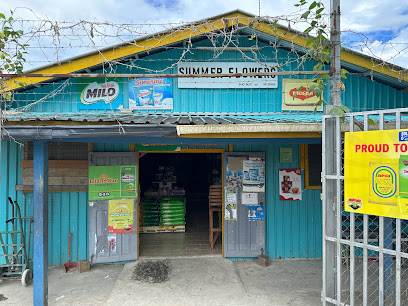
Kava Bar Munda
Experience the rich flavors and vibrant culture at Kava Bar Munda, the ultimate destination for kava lovers in the heart of Munda.
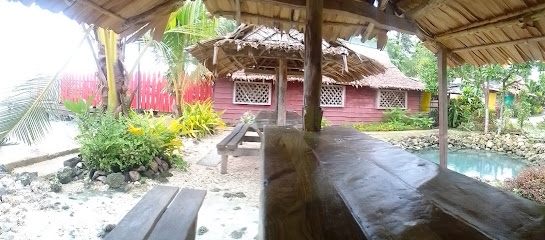
Almie Catering
Discover Almie Catering in Gizo: a vibrant bar offering local flavors and stunning views, perfect for relaxation and socializing in paradise.

Naqs
Discover the vibrant flavors of the Solomon Islands at Naqs, a must-visit restaurant in Gizo for an unforgettable culinary experience.

Shan Cafe
Experience the best of local and international flavors at Shan Cafe in Gizo, a must-visit dining destination for every traveler.

solomon island western province
Explore the rich flavors of Manado cuisine in Gizo, Solomon Islands, where every meal is a celebration of local culture and stunning natural beauty.

La Masa
Discover La Masa in Gizo for the best fish and chips, showcasing local flavors and a warm atmosphere in the heart of the Solomon Islands.

Local Phrases
-
- HelloAllo
[AH-loh] - GoodbyeKwanara
[kwah-NAH-rah] - YesAe
[AY] - NoEi
[AY] - Please/You're welcomePlis
[plees] - Thank youTangio
[TANG-ee-oh] - Excuse me/SorrySori
[SOH-ree] - How are you?Hao hemi yu?
[hao HEH-mee yoo] - Fine. And you?Nais. Na yu?
[NAH-ees. nah yoo] - Do you speak English?Yu save toktok long Inglish?
[yoo SAH-vey tohk-tohk lawng ING-lish] - I don't understandMi no save undastanem
[mee noh SAH-vey oon-dah-stah-nehm]
- HelloAllo
-
- I'd like to see the menu, pleaseMi laekem lukim menyu, plis
[mee LY-kem LOO-keem MEH-nyoo, plees] - I don't eat meatMi no kaik kaikai bilong han
[mee noh KAH-ee-kah-ee BEE-lawng hahn] - Cheers!Cheers!
[cheers] - I would like to pay, pleaseMi laekem pai, plis
[mee LY-kem pie, plees]
- I'd like to see the menu, pleaseMi laekem lukim menyu, plis
-
- Help!Help!
[help] - Go away!Go awe!
[goh AH-weh] - Call the Police!Kole Polis!
[KOH-leh POH-liss] - Call a doctor!Kole dokta!
[KOH-leh DOHK-tah] - I'm lostMi lusim
[mee LOO-seem] - I'm illMi sik
[mee seek]
- Help!Help!
-
- I'd like to buy...Mi laekem baim...
[mee LY-kem bai-eem] - I'm just lookingMi jes lukluk
[mee jess LOOK-look] - How much is it?Hao moa?
[hao moh-ah] - That's too expensiveIu tumas espensiv
[yoo TOO-mahs ehs-PEHN-seev] - Can you lower the price?Yu save fo daunim praes?
[yoo SAH-vey foh DOWN-eem PRICE?]
- I'd like to buy...Mi laekem baim...
-
- What time is it?Hao taem nao?
[hao tah-em now] - It's one o'clockEm wan o'klok
[em WAHN oh-KLOHK] - Half past (10)Long haf 10
[lawng hahf ten] - MorningMonin
[MOH-neen] - AfternoonAftanun
[ahf-tah-NOON] - EveningIvinin
[ee-VEE-neen] - YesterdayIstade
[ees-TAH-deh] - TodayTede
[TEH-deh] - TomorrowTumoro
[too-MOH-roh] - 1Wan
[wahn] - 2Tu
[too] - 3Tri
[tree] - 4Foa
[foh-ah] - 5Faiv
[fah-eev] - 6Sikis
[SEE-kees] - 7Seven
[SEH-vehn] - 8Eit
[ayt] - 9Nain
[nah-een] - 10Ten
[tehn]
- What time is it?Hao taem nao?
-
- Where's a/the...?Wara hemi ...?
[WAH-rah HEH-mee] - What's the address?Hao nom nomas?
[hao nohm NOH-mahs] - Can you show me (on the map)?Yu save fo soem mi (long map)?
[yoo sah-vey foh SOH-em mee] - When's the next (bus)?Hao taem bus i go kam?
[hao tah-em boos ee goh kahm] - A ticket (to ....)Wan tiket (long ....)
[wahn tee-keht lohng]
- Where's a/the...?Wara hemi ...?
History of Gizo
-
Before European contact, Gizo and its surrounding islands were inhabited by Melanesian people. These early settlers lived in small, self-sufficient communities, practicing subsistence farming and fishing. They had rich oral traditions, intricate woodcarvings, and unique customs that defined their way of life.
-
In the late 16th century, Spanish explorers were among the first Europeans to chart the Solomon Islands. Álvaro de Mendaña y Neira, a notable Spanish navigator, led expeditions in 1568 and 1595. However, it wasn't until the late 19th century that European interest in the islands surged, primarily for trade and missionary work.
-
The Solomon Islands became a British protectorate in 1893. Gizo, with its strategic location, grew in importance as a trading post and administrative center. The British established infrastructure, including roads and government buildings, influencing the local economy and way of life. Missionaries also arrived, introducing Christianity which gradually took root in the local culture.
-
Gizo played a significant role during World War II. The island was occupied by Japanese forces but later became a key battleground for Allied forces during the Pacific campaign. The waters around Gizo saw numerous naval battles, including the famous sinking of the PT-109 boat commanded by future U.S. President John F. Kennedy. The remnants of war, such as sunken ships and aircraft, now serve as popular diving sites.
-
After World War II, Gizo slowly rebuilt its infrastructure. The town became a hub for fishing, logging, and copra production. The local government invested in education and healthcare, improving the quality of life for its residents. Gizo's natural beauty and rich history began attracting tourists, further boosting the local economy.
-
Today, Gizo is a vibrant town that blends tradition with modernity. It serves as the capital of the Western Province and is known for its bustling market, diverse culture, and stunning natural landscapes. Gizo continues to thrive as a center for tourism, offering visitors a chance to explore its historical sites, coral reefs, and lush forests.
Gizo Essentials
-
Gizo is accessible primarily by air and sea. The closest international gateway is Honiara International Airport (HIR) in the capital city of Honiara. From Honiara, you can catch a domestic flight to Gizo's Nusatupe Airport (GZO), operated by Solomon Airlines. The flight takes approximately 1.5 to 2 hours. Alternatively, you can travel by sea using public ferries or private boat charters from Honiara, although this journey can take much longer, ranging from 12 to 24 hours depending on sea conditions.
-
Gizo is a small town, and many attractions are within walking distance. For exploring the surrounding areas, local taxis are available and relatively inexpensive. Boat taxis are also a common mode of transport for traveling between islands. If you prefer more flexibility, you can rent a car or a scooter from local rental agencies. Be aware that roads can be uneven and driving conditions may be challenging for those unfamiliar with the area.
-
The official currency in the Solomon Islands is the Solomon Islands Dollar (SBD). Credit cards are accepted in some hotels, restaurants, and larger shops, but it is advisable to carry cash for smaller establishments and local markets. ATMs are available in Gizo, but it is wise to withdraw sufficient cash in Honiara to ensure you have enough funds for your stay.
-
Gizo is generally a safe destination for tourists. However, standard precautions should be taken. Avoid walking alone at night in unfamiliar areas and keep an eye on your belongings in crowded places. While Gizo does not have specific high-crime areas targeting tourists, it is always best to stay vigilant and aware of your surroundings.
-
In case of emergency, dial 999 for immediate assistance. Gizo has a local police station and a hospital that can handle medical emergencies. It is recommended to have travel insurance that covers medical emergencies. For minor health issues, there are local pharmacies where you can purchase over-the-counter medications.
-
Fashion: Do dress modestly, especially when visiting villages and religious sites. Avoid wearing revealing clothing. Religion: Do respect local customs and traditions. Always ask for permission before entering a church or religious site. Public Transport: Do be respectful and patient. Don't raise your voice or behave aggressively. Greetings: Do greet people with a smile and a handshake. A simple 'hello' or 'good morning' is appreciated. Eating & Drinking: Do try local delicacies and accept food offerings graciously. Don’t refuse hospitality, as it is considered impolite.
-
To experience Gizo like a local, visit the local markets where you can buy fresh produce and traditional Solomon Islands goods. Engage with locals, as they are often friendly and willing to share stories about the area’s history and culture. Don’t miss the chance to explore the nearby islands and coral reefs, which offer excellent opportunities for snorkeling and diving. For a unique experience, visit during one of the local festivals to witness traditional music, dance, and customs.
Trending Landmark in Gizo
Nearby Cities to Gizo
-
Things To Do in Taro Island
-
Things To Do in Arawa
-
Things To Do in Yandina
-
Things To Do in Honiara
-
Things To Do in Tulagi
-
Things To Do in Auki
-
Things To Do in Kokopo
-
Things To Do in Rabaul
-
Things To Do in Alotau
-
Things To Do in Kimbe
-
Things To Do in Kavieng
-
Things To Do in Lata
-
Things To Do in Port Moresby
-
Things To Do in Lae
-
Things To Do in Madang









